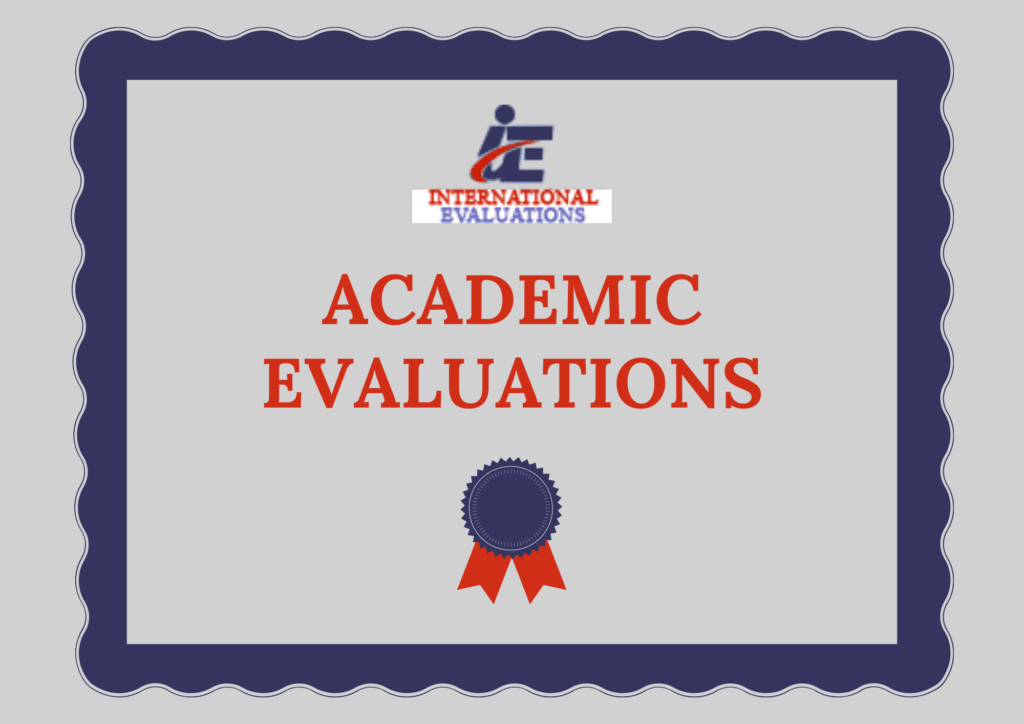Unveiling the Power of Academic Evaluation: A Roadmap to Success
In today’s dynamic education and career landscape, academic evaluations are essential for understanding and validating educational achievements. Whether you’re a student, professional, or employer, these evaluations provide clarity and credibility. In this blog, we’ll explore their significance, the evaluation process, and their impact on personal, academic, and professional growth. If you are also looking for academic evaluation service, you are the right place.
Importance of Academic Evaluation:
Global Education Opportunities:
For students pursuing higher education abroad, academic evaluations help universities assess the value of prior education within their programs. These evaluations guide admission decisions and credit transfers.
Professional Advancement: International Evaluations provide professionals with the means to enhance their career prospects by showcasing the rigor and content of their educational qualifications, especially when pursuing opportunities in new regions or industries.
Licensure and Certification: In regulated professions such as healthcare, engineering, and law, academic evaluations are often prerequisites for obtaining licenses or certifications. These evaluations ensure that professionals meet the necessary educational standards.
Cross-Border Mobility: In an increasingly globalized job market, academic evaluations play a key role in ensuring that qualifications obtained in one country are recognized and valued in another, promoting cross-border mobility for professionals.
The Academic Evaluation Process:
Document Submission: Applicants provide their academic transcripts, certificates, degrees, and related documents to an evaluation agency.
Comparative Analysis: Skilled evaluators assess the documents against the educational standards of the receiving institution or country. They analyze the curriculum, credit hours, grades, and overall content to determine equivalency.
Equivalency Determination: Based on the analysis, the agency assigns appropriate equivalencies, such as credit hours, grades, or degree levels, that align with the receiving institution’s or country’s standards.
Report Generation: A complete evaluation report is generated, detailing the courses, credits, grades, and equivalencies. This report serves as a formal record of the assessment and is shared with the applicant and relevant institutions.
Impact on Personal, Academic, and Professional Pursuits:
Educational Pathways: International Evaluations guide students in selecting appropriate courses and programs, ensuring prerequisites are met and facilitating smoother academic transitions.
Career Advancement: Professionals can leverage academic evaluations to demonstrate their qualifications to employers, making it easier to access new opportunities and responsibilities.
Credential Transparency: Employers benefit from academic evaluations by having a clear understanding of an applicant’s educational achievements, leading to informed hiring decisions.
Global Networking: Academic evaluation enable individuals to connect and collaborate with peers from different educational backgrounds, fostering a diverse and enriching learning environment.
Conclusion:
At International Evaluations, academic evaluations bridge recognition, helping individuals navigate the complex paths of education and careers. These evaluations provide a standardized language that helps institutions understand and compare qualifications across borders. Whether you’re a student, professional, or employer, understanding the importance of academic evaluations is key. It empowers you to begin a journey of growth, learning, and success.








